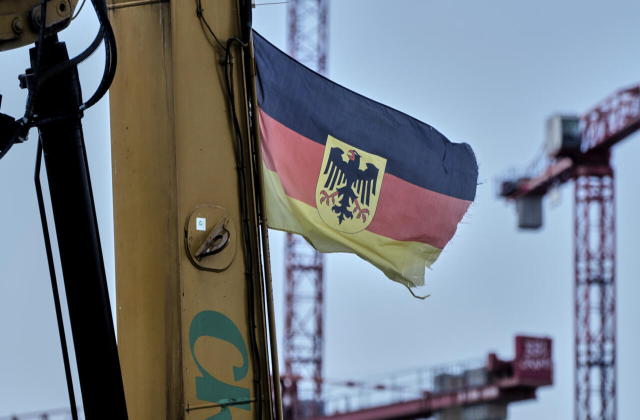Intermoney | Not everything in Germany is a problem of US commercial aggression. According to the Bundesbank, the German economy could have grown by 50% more between 2021 and 2024 if its export industries had not been held back by problems such as labour shortages and bureaucracy.
The central bank’s simulation suggests that German GDP would have expanded by 2.4 percentage points more during the period if exports had kept pace with demand in key markets. Added to this is the complaint by German companies about the much greater increase in bureaucratic obstacles compared to their Eurozone counterparts, such as slow approval procedures and cumbersome documentation requirements. Supply problems alone accounted for ‘more than three-quarters’ of the loss of global market share between 2021 and 2023 in key sectors such as machinery, electronics and chemicals, the Bundesbank noted.
There are other problems, such as those relating to external demand. We have seen this in the decline in interest in German vehicles, which are highly sensitive to weak Chinese growth and also to the sanctions on Russia themselves. For years, German manufacturers provided the tools and vehicles that underpinned China’s industrial expansion. However, the relationship has become increasingly competitive as the Asian giant has developed its industries in areas where German companies used to dominate.
With this problem on the table, the German government’s plans are to boost Germany’s role as a military power in Europe, although this is also subject to dependence on China, which maintains control thanks to its control of the minerals needed to drive the arms industry. According to the Federation of German Industries (BDI), the country’s largest industrial lobby group, rare earth elements such as neodymium and dysprosium, along with tungsten, graphite, titanium and high-purity magnesium, are the backbone of high-end military systems. They power radar arrays, electric motors, missile guidance fins, thermal sights and drone propulsion. As the BDI rightly warned: the EU imports 95% of all its strategic raw materials and depends on non-EU countries for 90% of them. Domestic processing in Germany is virtually non-existent. China, for its part, controls more than 50% of global processing of many critical minerals, and up to 86% of some of the most important ones for defence, such as gallium and germanium.
The risk increases the more advanced the weapons are. Eurofighter aircraft use strong, lightweight titanium, processed in China, for their frames and special heat-resistant metals, while Rheinmetall uses dense tungsten cores for its projectiles. The problem is that China actively restricts exports of these raw materials as a defence mechanism against tariffs, which has led to production delays and sudden cost increases.





